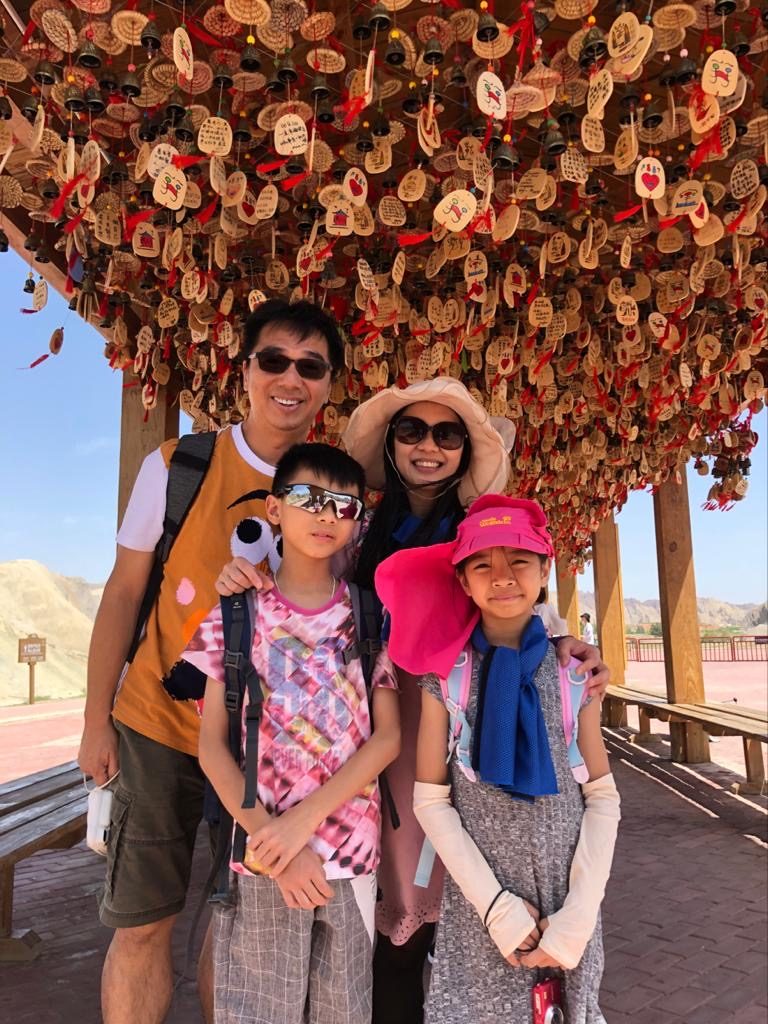Sharing from Mr. Raymond Cheung: Walking Together along the Journey of Learning
Siblings Raegan and Ariel have been taking lessons at Pathways for a number of years. Apart from the attention and guidance from teachers, the comprehensive care from their parents has also proven indispensable.
Mr. Raymond Cheung, father of Raegan and Ariel, is a pediatric physiotherapist. When Raegan was in Primary 1, Mr. Cheung noticed that Raegan had difficulty recognizing and writing words, and would often skip words or jump lines when reading. During that time, Mr. Cheung learnt about Pathways. He decided to send Raegan for an assessment, and was informed that Raegan was diagnosed as having dyslexia. After that, Mr. Cheung signed Raegan up at Pathways to receive intervention support for both Chinese and English literacy, and from there Raegan was able to find his direction in learning.
With this experience, Mr. Cheung learnt more about dyslexia, and realized that the condition could run in the family. Therefore he paid special attention to their younger daughter Ariel’s learning. Ariel performed well in Primary 1, and was even chosen to be class monitor. However, she showed difficulties in learning later on, often forgetting how to write words, misreading them, or writing mirrored characters. At that time, Ariel’s parents still hoped that it was simply due to carelessness. However, the situation got worse when Ariel was in Primary 2.
Early Assessment Allows Prompt Treatment
“Ariel was assessed when she was in Primary 2, and she was diagnosed as being borderline dyslexic,” said Mr. Cheung. “The assessing psychologist mentioned that if a child only barely passes the assessment in Primary 1 or 2, and therefore not given any further training, they will certainly fail further assessments in upper grades.”
Therefore, arrangements were made for Ariel also to have intervention support at Pathways. The teacher taught her phonograms and pictograms, improving her ability in word recognition. She stopped pronouncing characters by their radicals; 「峽 」 was no longer read as 「山 」, and 「故 」 was no longer read as「古 」.
Mr. Cheung expressed that he and his wife were glad to have arranged for an early assessment for Ariel, and to have dealt with it as soon as they knew of her condition. By now, they understand the learning needs of both their children, and therefore the family will always reserve more time for exam preparations. During summer holidays, they will encourage Raegan and Ariel to read passages for comprehension, yet without completing the written exercises; the children will also read short English storybooks, write diaries, etc. The purpose is for them to accumulate knowledge little bit by bit over time – not for getting better grades in exams, but to make it easier for them to learn in the future.
Learning is a Long-Distance Running Race
Apart from being the way to acquire knowledge, Mr. Cheung also instilled the importance of learning to his children from a young age, preparing them mentally for their growth. Most children with dyslexia do not like words, and it is difficult for them to attend class in mainstream schools. However, Mr. Cheung compares this learning process to a long-distance running race. He wants to equip his children with the mindset to win the race. With this mindset, they can then think of how to actively prepare for the goal.
“It is important that the children themselves have the willingness to compete, otherwise all the training will just be forced upon them, and it will be a lose-lose situation where both the parents and the children will be unhappy about,” said Mr. Cheung.
In the eyes of Mr. and Mrs. Cheung, Raegan and Ariel are not under-performers in exams. As long as their children try their best in preparation, and they do better than they did before, that will be fine. Being parents, they will always have their children’s back, and accompany them along this journey of learning!


